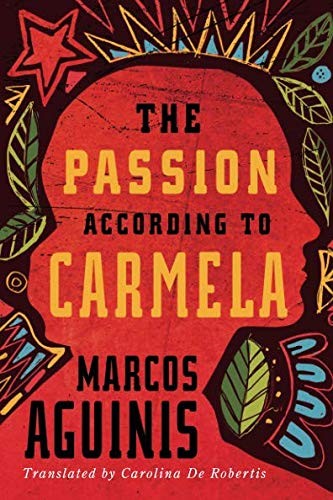Strong historical storyline, but needed deeper characterisation
3 steloj
Part of the publisher's marketing spiel for The Passion According To Carmela describes this novel as an 'epic love story'. Together with the word 'Passion' in the title, I thought I had a pretty good idea of what Aguinis' writing style would be. Unfortunately I was wrong! Two of the characters do fall in love, but in rather a lukewarm way and, although the actual historic events in 1950s and 1960s were 'epic', I struggled to apply that word to this novel. It's a shame.
The Passion According To Carmela is an interesting recounting of how rebel Cubans gradually turned towards Fidel Castro to save them from the tyranny of Batista, and how those same idealists were subsequently let down by a regime that strayed from its initial promises. As Aguinis described the guerilla battles and privations, I was strongly reminded of George Orwell's Spanish Civil War memoir Homage To …
Part of the publisher's marketing spiel for The Passion According To Carmela describes this novel as an 'epic love story'. Together with the word 'Passion' in the title, I thought I had a pretty good idea of what Aguinis' writing style would be. Unfortunately I was wrong! Two of the characters do fall in love, but in rather a lukewarm way and, although the actual historic events in 1950s and 1960s were 'epic', I struggled to apply that word to this novel. It's a shame.
The Passion According To Carmela is an interesting recounting of how rebel Cubans gradually turned towards Fidel Castro to save them from the tyranny of Batista, and how those same idealists were subsequently let down by a regime that strayed from its initial promises. As Aguinis described the guerilla battles and privations, I was strongly reminded of George Orwell's Spanish Civil War memoir Homage To Catalonia. Much of the political ideology and lack of basic resources appear identical. However Orwell wrote in quite a dry way which I felt kept the reader at a distance and Aguinis achieves the same result but with too much telling and not enough showing. He jumps from first-person to third-person narration with each chapter which is confusing enough, but his two lead characters - doomed lovers Carmela and Ignacio - don't even have distinct voices so I didn't always know whose perspective I was reading.
I wondered if the problem was perhaps in the translation so if anyone has read the original Spanish La pasion segun Carmela perhaps they could let me know whether they also had a sense of being one step removed from the action. There are strange colloquialisms too. In describing Carmela and Ignacio's initial attraction to each other, Aguinis repeatedly talks of the 'hot glass bridge' of their gaze. The what?!
There are good points to this novel. I do now know more about the Cuban revolution than I did a few days ago and the several chapters held my attention more strongly than others. The essential narrative line is strong, but I felt this story needed much stronger characterisation and better world-building in order to really spark my imagination.

